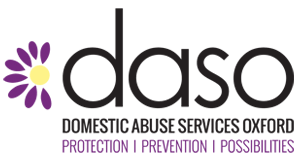About Us
Our Vision
A world with gender equity for all.
Our Mission
To provide effective, efficient, and accountable services for women and children who have been impacted by gender-based violence in Oxford County.
Our Values
CARE: Communication, Accountability, Respect, Empowerment.
Guiding Principles
We are feminists advocating for women’s rights and gender equality.
We facilitate collaboration.
We are effective and accountable.
We are responsive to service user and community needs.
Our services and programs are responsive and innovative.
We are community leaders on the issues of domestic violence and sexual violence.
We foster a culture of continuous learning and quality improvement.
Our story
A brief history of DASO
June 1974: The WEC emerged from a collective of women at the Young Women’s Christian Association (YWCA). Pioneering one of Canada’s first five women’s shelters, the WEC identified the critical need for a secure haven for women and children facing abuse. ‘591 Hatch’ officially welcomed its first occupants in August 1974, led by trailblazer Lee Lakeman, who served as homeowner, founder, and unpaid coordinator. During the first year, 114 women stayed overnight with their children in the small house. Some of the women came from outside of Oxford County, having learned of a “safe house” via word of mouth.
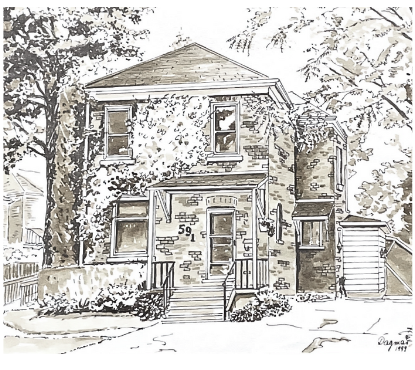
591 Hatch Street, Woodstock
February 1975: The Women’s Emergency Centre (Woodstock) Inc. was granted its official name, recognizing both what it had developed out of (The Women’s Centre) and the services provided. Operating without government assistance, WEC team including Ms. Lakeman, Julie Buell, and Janet Feeney relied on funds sourced from donors, actively working to obtain grants in order to keep WEC operating. The courage of these women laid the foundation for WEC’s impactful journey, and empowered survivors of intimate-partner violence to shape their own futures.
August 1976: With Canada Mortgage and Housing Corporation (CMHC) funding, the Centre was able to purchase a larger home at 768 Lawrason Street. In this 10-bed space, 200 courageous women and children accessed WEC’s shelter over the course of 1976. Despite financial and social challenges, the dedicated staff including Janet Feeney, Janice Ludberg, Teresa Scherle, Marilyn Murphy, Brenda Newton, and Karen DeLong persisted in their mission. During this period, societal attitudes toward domestic violence and gender roles were deeply entrenched in traditional values, pressuring women to remain in abusive relationships and not speak out about their struggles. At one point, in a dramatic moment, with only $9.33 in the bank, the Centre was saved by an $8,000 bailout from City Council. The move to this building was marked by a sense of just surviving, often with minimal community support.
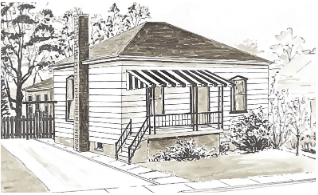
768 Lawrason Street, Woodstock
June 1985: In June 1985, the WEC moved to 117 Wilson St., purchased with CMHC and a Ministry of Children, Community, and Social Services (MCCSS) grant. The MCCSS also began annually funding WEC this year, considerably reducing the financial strain on WEC. Brenda Boswell, chairperson of the ‘new housing committee’ said the location would now be able to provide a playroom, lounge, offices, 5 bedrooms, storage space, and 4 bathrooms; 3 times the space of Lawrason St. At this point in our history, Louise Todd, the Executive Director, wanted to see the centre become more visible and accessible. During this time, the shelter saw an increase in average age of residents, presumably due to a growing acceptance of women choosing to leave abusive relationships.
June 1989: From initiatives started by the WEC recognizing the need for longer-term programming and support for women and children, we saw the creation of Ingamo Homes as a second-stage housing organization. Ingamo offers a subsidized housing unit for women and their children to live in for up to 2 years, offering empowerment and independence during their healing journey. Ingamo is often the next step after living at WEC/DASO.
September 1990: The Sexual Assault Crisis Line operated by Telecare was moved to the WEC.
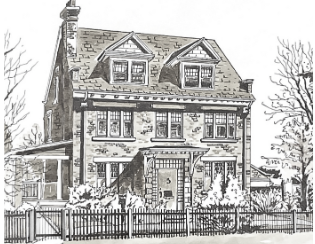
117 Wilson Street, Woodstock
October 1991: The 975 James Street facility opened, after being funded through the Ministry of Housing. This facility was designed to ensure accessibility of services for women and children. The new building provided increased security, privacy, and space. In this new space, we saw the installation of our first! professional security system. Before this point in our history, it was regular door locks and women staff helping to watch the doors of our shelter.
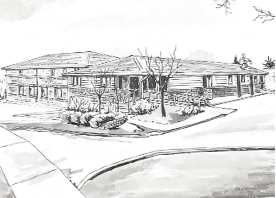
975 James Street, Woodstock
1995: Between 1995 and 1997, the incoming Harris provincial government imposed significant budget cuts to MCCSS housing and welfare programs, cutting women’s shelter budgets by 21.6%. The impact on us was severe, with our team having to reduce our already bare bones services. Despite efforts by the WEC and and shelters across the province to rebuild services in the 2000s, the cuts had a lasting a detrimental impact for over a decade on women experiencing violence and women’s services.
2000: The MCCSS funded two new programs across the province – the Transitional Housing and Support Program and the Child Witness Program. These programs helped to sustain the WEC’s existing Outreach Programs. A Women’s Transitional Worker was hired full time to assist women in overcoming barriers in moving ahead with their lives free of abuse and the funding from the Child Witness Program helped launch our Journeys program.
2007: Walk A Mile In Her Shoes is initiated by the community with the WEC Sexual Assault program being the recipient. Plans are started to restore sexual assault counselling in Tillsonburg with these funds. A new group “Survivor to Thriver” is developed and funded by a small increase from MCCSS. The CAW undertakes a massive Bob White Charity Golf Classic, raising $15,000 for the WEC and $65,000 for Women’s Community House in London!
2011: WEC was renamed to Domestic Abuse Services Oxford (DASO) reflecting our expanded scope of services offered and underscoring the agency’s status as a community leader and a vital resource for domestic abuse issues in the county.
March 2020: This year brought many challenges with the onset of the COVID-19 pandemic. For women and children staying at our shelter, life changed dramatically as we implemented new policies to ensure everyone’s safety. We experienced a large increase in crisis calls, needs, and a heightened severity in the abuse we were seeing. There were times where women were calling us as they hid in closets whispering, trying to get any information and help they could in their isolation at home. COVID-19 exacerbated the need for shelter services, affordable housing, and emotional support, highlighting the ‘silent pandemic’ of abuse faced by women and children in Oxford County.
2023: After extensive advocacy in partnership between DASO, Ingamo Homes, and the Domestic Abuse Resource Team (DART), Intimate Partner Violence (IPV) was officially declared an epidemic by the County of Oxford and the City of Woodstock. We are hopeful that this recognition will lead to increased awareness and funding for Intimate-Partner Violence services in the future.

